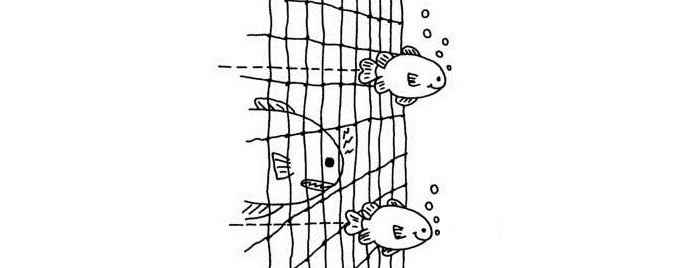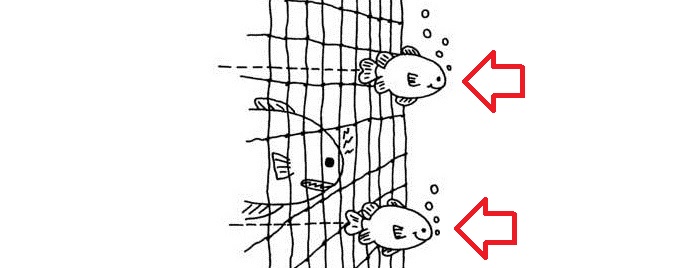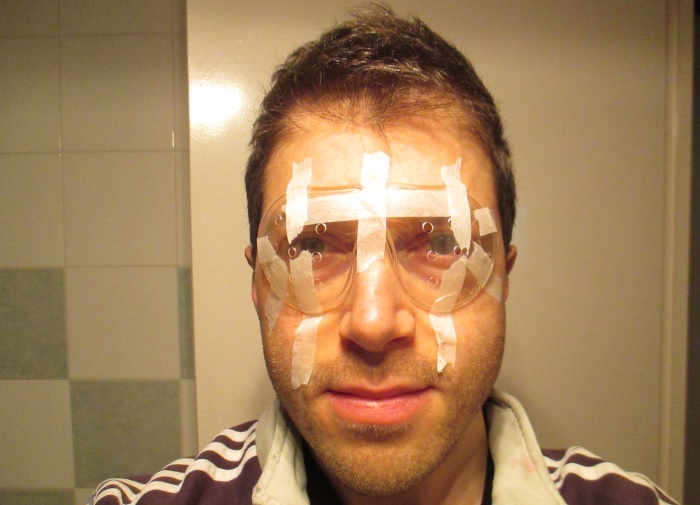These are some of the most important things that (I think) I learned, or that I am in the process of learning, in these last years of my life.
Spirituality
● The enormous power of the words thank you.
● The concept of consciousness. That there are different levels of consciousness at which people can live. That also music, movies, art, objects have their level of consciousness.
● It’s not consciousness that is created by matter, but exactly the opposite: matter is created by consciousness.
● Atheism has a fixed point of view, rather sterile. After graduating from the religious non-sense, a further graduation from atheism is possible, and necessary, to progress in the path of spiritual evolution.
● Chronic skepticism is a very counterproductive attitude. I used to be a chronic skeptic before, not believing “in anything”. These days I prefer to keep chronic skeptics at distance.
● I learned some great lessons from Eckhart Tolle’s books, in particular these three:
- what being present means, the idea of being here and now. And I realized that only a fraction of the thoughts that flow in my mind are useful. The rest are useless, repetitive, distracting noise.
- what the ego is. I realized that I do have an ego, and a terribly difficult one to tame.
- the mechanism of drama that drives many human relationships. Most people tend to create unnecessary and avoidable drama, to feed a little “beast” they have inside, a beast that feeds on negative emotions.
Of these three concepts, I think I understand well the theory behind the first two, but I still suck at turning the theory into practice. There are still more unobserved thoughts and more pretense in me than I would like to have. With drama, instead, I think I do well both with theory and practice. I’ve never been a big drama queen.
● The best rule to apply with people who are trying to start drama is: do not engage. Let them scream, gesticulate, cry, while staying absolutely calm, composed, in silence, just replying things like “yes, you’re right”, until they turn off.
● Life is about finding balance in the middle of two types of awareness:
- that we, human beings, have an enormous power and control over our lives, and we are able to realize wonderful, huge, sensational things.
- that there are things in our lives that we don’t control at all, and those things could destroy everything we built, in any moment.
The trick is to recognize that both are true, but then decide to have faith, and work hard to realize the wonderful things.
● Healing doesn’t correspond to feeling relaxed and comfortable all the time. Healing, usually, happens through pain and struggle.
● The law of attraction makes great sense, however it seems like many people don’t get the part attraction of it. After believing that something will happen, it is necessary to work -usually hard- to make it happen.
● Every person can be a hero. Even if most people today consider courage as a trait reserved for movie characters only, everyone can cultivate courage and apply it to real life, this life.
● Life tries to “talk” to us constantly, and tries to teach us lessons all of the time. The people we meet, the events that happen around us, they usually carry a message for us. We must stay receptive, like an antenna, to get the message.
● Dreams deserve much more attention than they’re commonly given: “normal” dreams that we have during sleep, lucid dreams in which we can manipulate the environment -they are a lot of fun-, and also daydreams. It is true that, as I read somewhere, dreams are not meant to make us sleep, but to make us wake up.
● Jesus Christ, probably, never existed as an historical figure. He is a fictional character that was invented by the ancient Romans, as a tool of propaganda to dominate the Jews of their times. I heard about this theory in the documentary “Caesar’s Messiah”, and I consider it not only very credible, but also a super huge revelation!
Love
● Love is much bigger than just romantic love, the “couple relationship” type of love that is extensively depicted in movies and books. That is just a part, but there’s also the love for friends, family, strangers, animals, plants, art, work, life.
● Jealousy doesn’t make sense. It’s basically a consequence of mistakenly assuming that the couple relationship type of love is all the love there is.
● If there is a meaning of life, it is love. At the end of the story, what really matters is the love we gave, and the love we received.
Myself
● The most important and difficult challenge in my life is learning to manage my emotions. I am aware now that if I want to succeed at achieving my biggest goals, this is a necessary skill to master. I have no other way.
● I won’t make meaningful progress in life by learning a lot of new notions. I will make it, instead, by learning some specific notions, and by cultivating virtues like courage, honesty and discipline.
● Practicing introspection, to discover what’s inside myself, is very difficult and painful. It’s also the most exciting adventure. And it’s sort of weird: I research, I study, I make efforts, all this without even knowing what it is that I am searching for. But I have a strong feeling that I have to continue digging.
● The inputs that I feed myself with (movies, books, music) impact directly the way I think, and the way I feel. As obvious as it seems now, I wasn’t aware about this connection some years ago. These days, I consciously avoid watching horror movies, or reading books about killers and psychopaths, for example. I prefer to feed my mind with happy topics.
● There are so many things that I don’t know. But the more new things I discover, the more grows in me a sense that there are others to discover…
People
● Having original thoughts is extremely rare. Most thoughts that circulate in people’s minds are someone else’s thoughts.
● A lot of people, when they talk, simply regurgitate what they have been taught as kids. They do this over and over, their entire life, without ever applying some critical thinking to decide if those teachings made sense or not.
● Just because someone speaks louder, or has a microphone in his hands, doesn’t mean that he deserves more attention.
● There’s a huge difference between education and wisdom. Many of the people I know are fairly well educated, but very few of them are wise.
● The world is full of corruption, hate, dishonesty, and still in the middle of this mess there are some people with super beautiful souls. They are so precious that they are worth the quest.
● It’s a great skill to be able to talk, and act, without being driven by emotions. And it’s important to recognize when other people, especially those who are close, like family and friends, give advice that is dictated by their fears and insecurities, so to discard it.
● Many people never change. As much as they’re exposed to clear, useful information that they could use to solve their problems, they will ignore that information and keep on struggling with the same problems, over and over, for their entire life. It’s better not to lose time insisting in helping them, but to focus instead on those who are ready to accept solutions.
● The best way to deal with depressed people is to stay away from them. Happiness is a choice, and most depressed people simply choose to be unhappy.
● There are things that the masses do, but no matter how many people do them: they still make absolutely no sense, so there’s no need to join them. Two great examples in this category are:
- turning to politics to have the problems of the society fixed.
- working at jobs where time is traded for money.
Money
● Money is an exciting topic, and not boring as I used to think. Money is very useful to understand people’s emotions, especially fear.
● Money is ultimately just a mental construct.
● Money favors those who produce and control it (banks and governments) and enslave those who have to use it (citizens).
● Having a regular job is not the only honest way to earn money, passive income systems are another option, and a much smarter one under many points of view.
● Economy and finance are two very different things. Economy is more about people, how they behave in the market to meet their desires. It’s a much more concrete, useful topic to study. Finance instead is about paper money, banks, graphs, titles: these things are part of a circus that adds no value to the life of people.
● Making the transition from employee to entrepreneur requires a huge shift in the mindset. An entrepreneur needs very different skills: for example it’s necessary to understand more the psychology of people.
● Understanding the law of supply and demand is super useful, and not just for an entrepreneur who runs a business, but for everybody, because it applies to many situations in daily life.
● You can’t do the right things, if you’re in the wrong place. For example, even if you work hard, diligently and efficiently, but you’re providing your labor to institutions that produce zero (or negative) value for the society -like banking corporations or cigarette producers- then you’re illuding yourself that you’re “doing a good job”.
● I think I understand money enough, now, to be able to become very wealthy if I want, in a honest way, and without even working too much. However, I haven’t decided yet if this is really what I want. Lots of money would allow me to develop some beautiful projects on a big scale (like building hospitals, schools, educational media), but on the other hand, it would inevitably attract the attention of the government. And I’m not sure I want to spend my time dealing with such a gigantic and predatory structure. I need to reflect more about this.
● One of the craziest things of the modern world is that most people spend an entire life working for money, without even understanding what the working is for. They never take some time to learn how money is produced, by who, how it works.
● Few things will put you in an uncommon position as becoming financially free. While everyone around talks, acts and moves driven by the desire of making money, you’re part of a very tiny minority that focuses on other topics.
Health
● Having a healthy diet requires essentially two things:
- developing a knowledge about nutrition (in particular understanding the concept of density of nutrients of foods).
- discipline.
● Products based on refined flour (like pasta and bread) are almost as unhealthy as white sugar. It doens’t make sense, as I was doing until some years ago, to avoid sugar as a fundamentalist, but then splurge on pasta and bread everyday.
● If there is one food that I always have to stay alert not to eat, it’s burnt food. The black spots under the pizza, toasted bread, and grilled meat are loaded with a disastrous amount of toxins.
● Most of the honey sold in the stores is as bad as white sugar, because it’s pastorized, heated at high temperature, that’s what makes it as transparent and fluid as syrup. Raw honey is the way to go.
● Dairy products with reduced amounts of fat, or completely fat-free, are actually less healthy than their whole counterparts. The fat in milk, yogurt and cheese is useful to digest fat-soluble vitamins. So it’s better to eat these foods whole.
● Diet impacts the overall health, and also the body figure, more than exercise does.
● Exercise is useful, but too much of it can stress the body and worn it out. I used to go to the gym 3/4 times per week, these days I prefer to go a couple times and pay more attention to the way I eat, instead.
● Despite being super popular, jogging is actually not so healthy. When a person jogs, tissues and organs of the body jump up and down, up and down, up and down, and that’s quite stressing, and pro-aging, for the organism. It’s much healthier in the long run to prefer activities like moderate weight lifting, yoga, gymnastics.
Notes: I expect that these insights will be valid for many years to come, so I wrote this post as a reminder for myself, with some useful indications to follow in the future. It will also be interesting to see if I’ll change my mind about some of them, and if I will feel like adding more.





